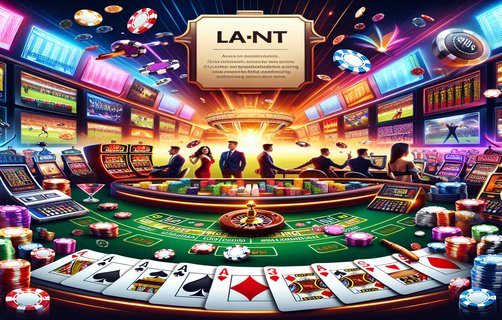Navigating the Intersection of User Engagement, Gambling Trends, and Technology in the Gaming Industry
As the gaming industry continues to evolve, understanding the dynamics of user engagement metrics becomes essential for businesses aiming to thrive. Engaging users effectively is a multifaceted challenge, requiring both innovative approaches and a keen awareness of the psychological aspects that drive user behavior. In this landscape, concepts like gambling addiction, continuation betting, and loyalty rewards emerge as critical factors influencing how players interact with gaming platforms.
Firstly, user engagement metrics serve as a vital tool for assessing the effectiveness of gaming offerings. Metrics such as daily active users, retention rates, and user session lengths provide insights into player behavior. High engagement typically leads to increased revenue opportunities; thus, businesses must analyze data to identify areas for improvement. By utilizing real-time analytics, companies can adapt their strategies swiftly, catering to user preferences and enhancing the overall experience.
However, this high level of engagement comes with a caveat: the growing concern surrounding gambling addiction. The immersive nature of gaming can lead individuals down a precarious path, making it imperative for companies to adopt ethical practices. Implementing responsible gaming features, such as self-exclusion options and awareness campaigns, can mitigate the risks associated with gambling addiction. This approach not only safeguards the users but also builds trust and loyalty towards the platform.

Another pivotal element in user engagement is continuation betting, a practice prevalent in various gaming environments. Continuation betting allows players to maintain their involvement in a game rather than exiting after a loss. This type of engagement often creates a cycle that can be difficult for players to break out of, leading to increased spending and potential addiction. From a business standpoint, while continuation betting can enhance revenue in the short term, it’s essential to consider the long-term implications on player well-being and brand reputation.
Loyalty rewards programs also play a crucial role in shaping user engagement. By incentivizing players through rewards, businesses can foster a deeper connection with their audience. These programs can be structured to reward frequent players with bonuses, exclusive offers, or in-game assets, thus encouraging them to remain active on the platform. However, it’s important to strike a balance — overly aggressive rewards might encourage excessive spending or further entrench gambling behaviors, leading to ethical dilemmas.
As technology progresses, features such as fast loading times and user-friendly interfaces are non-negotiable expectations for players. A seamless experience not only reflects professional standards but also significantly increases user satisfaction and retention. Players are likely to abandon platforms that suffer from lagging interfaces, emphasizing the need for continuous upgrades to maintain engagement and lower bounce rates.

The advent of future bets — wagers placed on events that are scheduled to occur in the future — introduces additional complexity to user engagement. Future bets can draw in users interested in long-term gameplay strategies. However, they also necessitate careful monitoring, as they can lead to impulsive betting behaviors if not managed properly. Platforms must ensure they provide users with adequate information and resources to make informed decisions, thereby promoting responsible gambling.
Moreover, the integration of prepaid cards offers players an extra layer of control over their spending habits. By enabling users to link payments to a fixed budget, companies can help mitigate the risks of overspending, which could lead to gambling addiction. Prepaid options not only appeal to a demographic concerned about their budget but also promote responsible gaming by allowing players to set limits on their expenses.
Analyzing the gaming landscape from these multiple angles reveals a delicate balance between pushing engagement strategies and adhering to ethical considerations. The role of user engagement metrics cannot be overstated, as they provide critical insights into player behavior, but there must be a conscious effort to prioritize user well-being amidst rising gambling-related issues. By fostering loyalty, ensuring fast access to their platforms, and implementing responsible gaming practices, companies can thrive in an increasingly competitive environment without sacrificing integrity or user satisfaction.
